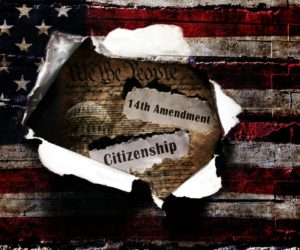A planned trip to Switzerland this week by George W. Bush was canceled after human rights activists called for demonstrations and threatened legal action over allegations that the former president sanctioned the torture of terrorism suspects.
The New York-based Center for Constitutional Rights and several European human rights groups said they were planning to file a complaint against Bush and wanted Swiss prosecutors to open a criminal case against him once he arrived in the country.
Here’s the CCR press release. The Mail Online is more blunt:
Former U.S. President George W. Bush has cancelled a visit to Switzerland over fears he could have been arrested on torture charges.
Mr Bush was due to be the keynote speaker at a Jewish charity gala in Geneva on February 12.
But pressure has been building on the Swiss government to arrest him and open a criminal investigation if he enters the country.
Remember Attorney Philippe Sands in an interview with Dave Davies on Fresh Air about interrogation techniques and how Britain’s handling of the IRA could teach the U.S. a thing or two. Sands is the author of Torture Team: Rumsfeld’s Memo and the Betrayal of American Values, an international human rights attorney, and has worked on several high-profile cases including the extradition of former Chilean dictator Augusto Pinochet.
The Pinochet portion of the interview is fascinating. Sands explains why, decades after his alleged crimes, he was arrested in London. Pinochet was friendly with Margaret Thatcher, felt safe in Britain, so went there for medical treatment in 1998:
[I]t was the 16th of October, there was a knock on his door and a number of police officers came in and arrested him. And they arrested him because a Spanish prosecutor by the name of Judge Garzon had issued an arrest warrant for allegations of torture, and indeed a whole lot of other crimes, carried out in Chile in the period 1973 to 1990. So much, much earlier on. And the significance about those acts, the acts of torture and related acts, is that they fall within something called universal jurisdiction. That’s to say they are international crimes which any country in the world has an obligation to prosecute if an individual turns up in their country, or to extradite the person to a place where that person will be prosecuted. [E.A.] And so Pinochet arrives in the UK, a Spanish prosecutor makes the request, and the British authorities have no option but to take action on the Spanish request…
Sands explains that after 18 months of legal proceedings the decision was that Pinochet could, in fact, be extradited to Spain to face trial for allegations of torture.
“The case,” says Sands, “established the principle that even a former head of state who is alleged to have committed torture will not be able to gain immunity from the jurisdiction of courts.”
Davies asks, of course, are any of the officials of the Bush administration vulnerable to prosecution?
I think they’re extremely vulnerable to investigation… And that goes right to the top. It goes to Mr. Rumsfeld, it goes to Mr. Rumsfeld’s lawyer, Jim Haynes, and others down the chain of command who played an active role in authorizing the techniques of interrogation; which is why the issue of where it all started becomes so important, and why the administration’s narrative that it started at the bottom and then just trickled up is, I think, necessary to explore much further.
But the bottom line is very, very clear. If you engage in torture, if you are complicit in torture, if you participate in torture, you expose yourself to the risk of investigation anywhere in the world. And that is a risk that applies to anyone of any nationality, and being a former administration official doesn’t help. [E.A.] So the immunity that the administration has tried to create with the Military Commissions Act will have no effect outside the United States, nor will any possible pardon by President Bush, which apparently is being suggested in relation to some of these characters.
That reads to me like George W’s decision to stay home is a sound one.
Raw Story points out that the decision comes on the ninth anniversary of a key decision: “Nine years ago today, the Bush administration decided that international law does not apply to prisoners of war.”
















